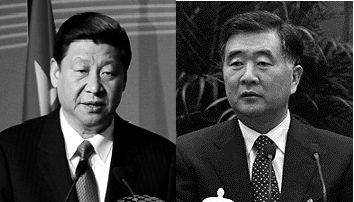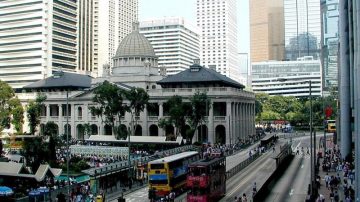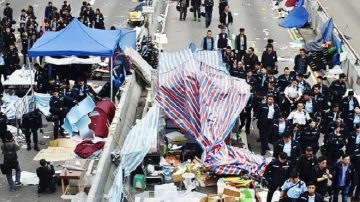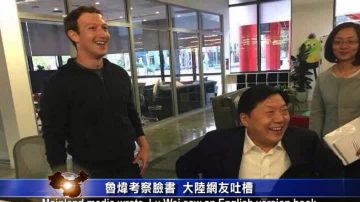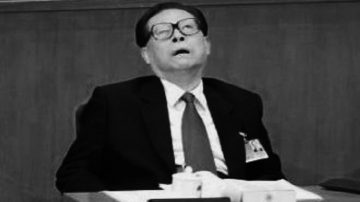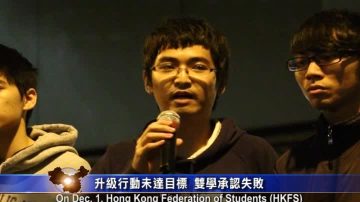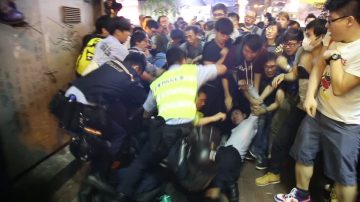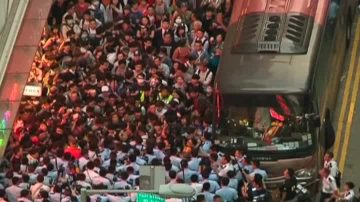【新唐人2014年12月09日訊】香港佔中運動持續至今已有70多天,特首梁振英日前表示,會在適當時候宣佈金鐘佔領區清場日期,並指佔領後期,參與的人越少,行動會越激烈。對此,學聯回應,愈來愈激烈的是警方。面對不見結束跡象的佔中運動,中共當局會採取甚麼策略呢?我們一起來看報導。
香港特首梁振英7號考察深圳前海後表示,當局已經有心理及行動上的準備,佔領行動到了後期,人數越少,留下來的參與者會越激烈,警方在清場或協助執達主任執行法院命令時,可能會遇到激烈抵抗。梁振英要求金鐘和銅鑼灣的佔領人士,尤其是年輕人和學生,儘快撤離。
針對學民思潮成員絕食要求重啟政改的訴求,梁振英表示,絕食及佔中的學生不清楚《基本法》及人大決定,他還說,政改工作從沒有停過,「不存在」重啟政改五部曲。
學聯副祕書長岑敖暉則回應,使用武力愈來愈激烈的是警方。他們與佔領者商討後,並沒有打算現階段撤離。岑敖暉還表示,即使佔領結束,學生也會繼續抗爭,包括在政改方案出爐時向政府及立法會議員施加更大壓力。
據了解,警方已作好準備,會在這個星期協助執達吏在中環執行禁制令。有佔中人士向香港《明報》透露,將成立一個「勇武派」組織,以盾牌等守住防線。
英國《金融時報》指出,面對行動逐步升級的示威者,北京「等待抗議結束」的策略或許不再站得住腳。它必須要麼作出讓步,要麼採取果斷行動以結束抗議活動。但是,這兩個選擇,哪個也不容易。
旅美中國社會問題研究人士張健:「對待佔中,讓它是非常棘手的問題,第一不能用軍隊武力鎮壓,會導致國際社會可能對中國(共)進行全面的制裁,它現在是內憂外患,在經濟上急需大量的訂單,它也不能對香港普選有真正的回應,因為香港一旦實行真正普選,有可能全中國所有地方都會要求進行真正的普選,中共無法開這個口子。」
北京時政觀察人士華頗:「我想,中共在等時機,它已經看到了香港佔中者發生了一些錯誤,比如衝擊立法會、衝擊特首總部,中共在找一種鎮壓藉口,只要佔中者繼續犯錯,被中共抓住把柄了,它就會讓國際社會看,它就會以暴制暴。但說是不是像六四那樣真槍實彈,我看不大可能。」
《金融時報》報導指出,香港這場危機是對中共國家主席習近平領導能力的首次真正考驗。在「一國兩制」所提供的法律保護下,堅定、理想主義的香港年輕抗議者不會輕易被嚇倒。
張健:「香港畢竟是被英國統治這麼多年,每一個人都具備民主價值的觀念,中共又號稱依法治國,號稱有基本法在前面,中共又被自己的東西所禁錮住了,這就是現在產生這樣一個非常膠著的原因之一。」
旅美中國社會問題研究人士張健指出,香港爭民主運動是中共江派刻意挑起的。
張健:「要把習近平拖下水,唯一的方式,現在就是用香港的問題。在一國兩制上,在普選上,因為在真普選的問題上,在香港歷年的遊行活動中,中共的情治部門還是判斷非常準確的,一旦把真普選這個問題給擱置之後,香港市民的反彈勢必是非常大的,所以用這個方式,有可能會逼迫現政權和江派進行一種內部的交易。」
張健認為,佔中運動如果撤退,香港就沒有未來。
張健:「如果香港人民退縮了,無論是中共的哪一派都會勝利,首先是中共的勝利,所以香港人民一定要去堅持,才會有希望。」
據報導,香港「傘下爸媽」等10幾個團體,7號發起反警察暴力遊行。此外,有市民自發舉行28小時接力絕食行動,在學民的絕食區外搭起帳篷。不過,學民思潮召集人黃之鋒表示,醫療人手不足,不建議學民以外成員加入絕食。
採訪/朱智善 編輯/陳潔
Federation of Students Object to Leung Chun-ying's Call for Retreat
How Will Beijing React?
Hong Kong Occupy Central Movement has lasted
over 70 days.
Chief Executive Leung Chun-ying said that he would soon
announce the date for clearing the occupied Admiralty area.
He pointed out that in the later stage of the occupation,
the protesters would be fewer, but action would be more violent.
In this regard, the Federation of Students responded
that it's the police that would be more and more violent.
Faced with the unending Occupy Central Movement,
what strategy will the CCP take?
Please take a look at the following reports.
Hong Kong Chief Executive Leung Chun-ying said
on Dec. 7, before his trip to Shenzhen, that the authorities
are in psychological and physical readiness.
That is, in the later stage of the occupation, the remaining
protesters would be fewer, but they might be more and more
violent, and when the police clear the occupied area or help
the chief bailiff to carry out the court order, they may
encounter fierce resistance.
Leung thus called on those who participate in the occupation
movement at the Admiralty and Causeway Bay, especially
youngsters and students, to evacuate the areas as soon as possible.
As to the fact that Scholarism members use hunger strike to
petition for restarting political reform, Mr. Leung said those
who go on hunger strike and the students participating
in the Occupy Central Movement do not know the "Basic Law"
and the decision made by the National People's Congress.
He added that political reform has never been stopped.
So, there's no need to have the so-called five steps
to restarting political reform.
Deputy Secretary General of the Federation Lester Shum
responded that it is the police that use weapons
more and more violently.
After consulting with those who participate in the Occupy
Central Movement, they have no plan to evacuate the place
at this stage.
Lester Shum also said that even if the occupation ended,
the students will continue to protest, including putting more
pressure on the government and the Legislative Council
after the political reform program is released.
It is understood that the police are poised to assist the bailiff
carry out the injunction at the Central this week.
Some Occupy Central protesters told Ming Pao Daily
that they would set up a "chivalrous faction" organization
to secure the beachhead with shields and other stuff.
Financial Times pointed out that faced with the protesters
who have escalated their action, Beijing's tactic of "waiting
for an end to the protest" may no longer be tenable.
It must either make concessions or take decisive action
to end the protest. However, neither one would be an easy task.
US-based China's social problems researcher Zhang Jian:
"Concession is a very tough issue.
For one thing, it cannot use military force to suppress the protesters.
It may lead to the international community's comprehensive
sanctions against the Chinese regime.
It has encountered difficulties at home and abroad for the time
being. On the economic front, it needs a lot of orders badly.
For another, it cannot have a real response to the demand
for universal suffrage in Hong Kong, as once universal suffrage
is granted in Hong Kong, various places across China
are likely to demand genuine universal suffrage too.
As a result, the Chinese regime cannot open this door."
Beijing politics observer Hua Po: "I think, the Chinese regime
is waiting for the timing.
It has noticed some mistakes made by Hong Kong Occupy
Central protesters, such as the attacks on the Legislative Council
and the Chief Executive Headquarters.
The Chinese regime is looking for a pretext for repression.
As long as Occupy Central protesters continue to make mistakes,
the regime may grasp the opportunity to let the international
community know that violence must be met by violence.
But if some say that it may be something like the June-4th,
I think it's unlikely."
The Financial Times reported that the crisis in Hong Kong
is the first real test for Chinese President Xi Jinping's leadership.
Under the legal protection of "One Country, Two System,"
the firm and idealistic young protesters in Hong Kong
would never be intimidated easily.
Zhang Jian: "After all, as Hong Kong was under British rule
for so many years, everyone is accustomed to the concept
of democratic values.
Moreover, since the Chinese regime has also bragged about
its rule of law, under the Basic Law, it has been entangled
by something of its own creation.
This is one of the reasons why it’s so stalemated."
Zhang Jian pointed out that the democratic movement
in Hong Kong was deliberately instigated by the Jiang faction.
Zhang Jian: "To drag Xi Jinping into trouble, the only way now
is to use the crisis in Hong Kong.
In terms of the 'One Country, Two System' and universal suffrage,
in the marching activities in Hong Kong on the issue of genuine
universal suffrage in the past, the CCP intelligence agency's
judgment was quite good.
Once the problem with genuine universal suffrage is put off,
Hong Kong people's reaction would be very strong.
So, this approach may force the ruling regime to have
an internal deal with the Jiang faction."
Zhang Jian believes retreat will only bring an end
to the future of Hong Kong.
Zhang Jian: "If Hong Kong people retreat, either faction
within the CCP would be the winner.
So, Hong Kong people must stand firm, so that it may succeed.
If they lose the streets, they would lose Hong Kong's future."
It is reported that over ten organizations in Hong Kong,
including the Umbrella Parents,
launched an anti-police brutality march on Dec. 7.
In addition, some residents voluntarily participated in the
28-hour hunger strike relay campaign in the tents outside
the hunger strike area occupied by Scholarism.
However, Scholarism student leader Joshua Wong said
that due to the shortage of medical personnel,
people other than Scholarism members are not encouraged
to join the hunger strike.
Interview/Zhu Zhishan Edit/ChenJie
香港特首梁振英7號考察深圳前海後表示,當局已經有心理及行動上的準備,佔領行動到了後期,人數越少,留下來的參與者會越激烈,警方在清場或協助執達主任執行法院命令時,可能會遇到激烈抵抗。梁振英要求金鐘和銅鑼灣的佔領人士,尤其是年輕人和學生,儘快撤離。
針對學民思潮成員絕食要求重啟政改的訴求,梁振英表示,絕食及佔中的學生不清楚《基本法》及人大決定,他還說,政改工作從沒有停過,「不存在」重啟政改五部曲。
學聯副祕書長岑敖暉則回應,使用武力愈來愈激烈的是警方。他們與佔領者商討後,並沒有打算現階段撤離。岑敖暉還表示,即使佔領結束,學生也會繼續抗爭,包括在政改方案出爐時向政府及立法會議員施加更大壓力。
據了解,警方已作好準備,會在這個星期協助執達吏在中環執行禁制令。有佔中人士向香港《明報》透露,將成立一個「勇武派」組織,以盾牌等守住防線。
英國《金融時報》指出,面對行動逐步升級的示威者,北京「等待抗議結束」的策略或許不再站得住腳。它必須要麼作出讓步,要麼採取果斷行動以結束抗議活動。但是,這兩個選擇,哪個也不容易。
旅美中國社會問題研究人士張健:「對待佔中,讓它是非常棘手的問題,第一不能用軍隊武力鎮壓,會導致國際社會可能對中國(共)進行全面的制裁,它現在是內憂外患,在經濟上急需大量的訂單,它也不能對香港普選有真正的回應,因為香港一旦實行真正普選,有可能全中國所有地方都會要求進行真正的普選,中共無法開這個口子。」
北京時政觀察人士華頗:「我想,中共在等時機,它已經看到了香港佔中者發生了一些錯誤,比如衝擊立法會、衝擊特首總部,中共在找一種鎮壓藉口,只要佔中者繼續犯錯,被中共抓住把柄了,它就會讓國際社會看,它就會以暴制暴。但說是不是像六四那樣真槍實彈,我看不大可能。」
《金融時報》報導指出,香港這場危機是對中共國家主席習近平領導能力的首次真正考驗。在「一國兩制」所提供的法律保護下,堅定、理想主義的香港年輕抗議者不會輕易被嚇倒。
張健:「香港畢竟是被英國統治這麼多年,每一個人都具備民主價值的觀念,中共又號稱依法治國,號稱有基本法在前面,中共又被自己的東西所禁錮住了,這就是現在產生這樣一個非常膠著的原因之一。」
旅美中國社會問題研究人士張健指出,香港爭民主運動是中共江派刻意挑起的。
張健:「要把習近平拖下水,唯一的方式,現在就是用香港的問題。在一國兩制上,在普選上,因為在真普選的問題上,在香港歷年的遊行活動中,中共的情治部門還是判斷非常準確的,一旦把真普選這個問題給擱置之後,香港市民的反彈勢必是非常大的,所以用這個方式,有可能會逼迫現政權和江派進行一種內部的交易。」
張健認為,佔中運動如果撤退,香港就沒有未來。
張健:「如果香港人民退縮了,無論是中共的哪一派都會勝利,首先是中共的勝利,所以香港人民一定要去堅持,才會有希望。」
據報導,香港「傘下爸媽」等10幾個團體,7號發起反警察暴力遊行。此外,有市民自發舉行28小時接力絕食行動,在學民的絕食區外搭起帳篷。不過,學民思潮召集人黃之鋒表示,醫療人手不足,不建議學民以外成員加入絕食。
採訪/朱智善 編輯/陳潔
Federation of Students Object to Leung Chun-ying's Call for Retreat
How Will Beijing React?
Hong Kong Occupy Central Movement has lasted
over 70 days.
Chief Executive Leung Chun-ying said that he would soon
announce the date for clearing the occupied Admiralty area.
He pointed out that in the later stage of the occupation,
the protesters would be fewer, but action would be more violent.
In this regard, the Federation of Students responded
that it's the police that would be more and more violent.
Faced with the unending Occupy Central Movement,
what strategy will the CCP take?
Please take a look at the following reports.
Hong Kong Chief Executive Leung Chun-ying said
on Dec. 7, before his trip to Shenzhen, that the authorities
are in psychological and physical readiness.
That is, in the later stage of the occupation, the remaining
protesters would be fewer, but they might be more and more
violent, and when the police clear the occupied area or help
the chief bailiff to carry out the court order, they may
encounter fierce resistance.
Leung thus called on those who participate in the occupation
movement at the Admiralty and Causeway Bay, especially
youngsters and students, to evacuate the areas as soon as possible.
As to the fact that Scholarism members use hunger strike to
petition for restarting political reform, Mr. Leung said those
who go on hunger strike and the students participating
in the Occupy Central Movement do not know the "Basic Law"
and the decision made by the National People's Congress.
He added that political reform has never been stopped.
So, there's no need to have the so-called five steps
to restarting political reform.
Deputy Secretary General of the Federation Lester Shum
responded that it is the police that use weapons
more and more violently.
After consulting with those who participate in the Occupy
Central Movement, they have no plan to evacuate the place
at this stage.
Lester Shum also said that even if the occupation ended,
the students will continue to protest, including putting more
pressure on the government and the Legislative Council
after the political reform program is released.
It is understood that the police are poised to assist the bailiff
carry out the injunction at the Central this week.
Some Occupy Central protesters told Ming Pao Daily
that they would set up a "chivalrous faction" organization
to secure the beachhead with shields and other stuff.
Financial Times pointed out that faced with the protesters
who have escalated their action, Beijing's tactic of "waiting
for an end to the protest" may no longer be tenable.
It must either make concessions or take decisive action
to end the protest. However, neither one would be an easy task.
US-based China's social problems researcher Zhang Jian:
"Concession is a very tough issue.
For one thing, it cannot use military force to suppress the protesters.
It may lead to the international community's comprehensive
sanctions against the Chinese regime.
It has encountered difficulties at home and abroad for the time
being. On the economic front, it needs a lot of orders badly.
For another, it cannot have a real response to the demand
for universal suffrage in Hong Kong, as once universal suffrage
is granted in Hong Kong, various places across China
are likely to demand genuine universal suffrage too.
As a result, the Chinese regime cannot open this door."
Beijing politics observer Hua Po: "I think, the Chinese regime
is waiting for the timing.
It has noticed some mistakes made by Hong Kong Occupy
Central protesters, such as the attacks on the Legislative Council
and the Chief Executive Headquarters.
The Chinese regime is looking for a pretext for repression.
As long as Occupy Central protesters continue to make mistakes,
the regime may grasp the opportunity to let the international
community know that violence must be met by violence.
But if some say that it may be something like the June-4th,
I think it's unlikely."
The Financial Times reported that the crisis in Hong Kong
is the first real test for Chinese President Xi Jinping's leadership.
Under the legal protection of "One Country, Two System,"
the firm and idealistic young protesters in Hong Kong
would never be intimidated easily.
Zhang Jian: "After all, as Hong Kong was under British rule
for so many years, everyone is accustomed to the concept
of democratic values.
Moreover, since the Chinese regime has also bragged about
its rule of law, under the Basic Law, it has been entangled
by something of its own creation.
This is one of the reasons why it’s so stalemated."
Zhang Jian pointed out that the democratic movement
in Hong Kong was deliberately instigated by the Jiang faction.
Zhang Jian: "To drag Xi Jinping into trouble, the only way now
is to use the crisis in Hong Kong.
In terms of the 'One Country, Two System' and universal suffrage,
in the marching activities in Hong Kong on the issue of genuine
universal suffrage in the past, the CCP intelligence agency's
judgment was quite good.
Once the problem with genuine universal suffrage is put off,
Hong Kong people's reaction would be very strong.
So, this approach may force the ruling regime to have
an internal deal with the Jiang faction."
Zhang Jian believes retreat will only bring an end
to the future of Hong Kong.
Zhang Jian: "If Hong Kong people retreat, either faction
within the CCP would be the winner.
So, Hong Kong people must stand firm, so that it may succeed.
If they lose the streets, they would lose Hong Kong's future."
It is reported that over ten organizations in Hong Kong,
including the Umbrella Parents,
launched an anti-police brutality march on Dec. 7.
In addition, some residents voluntarily participated in the
28-hour hunger strike relay campaign in the tents outside
the hunger strike area occupied by Scholarism.
However, Scholarism student leader Joshua Wong said
that due to the shortage of medical personnel,
people other than Scholarism members are not encouraged
to join the hunger strike.
Interview/Zhu Zhishan Edit/ChenJie

